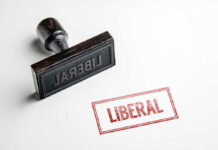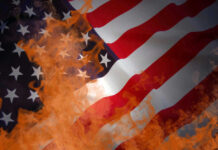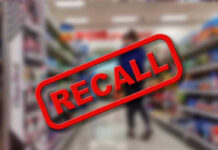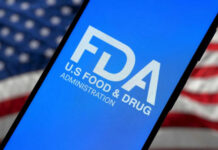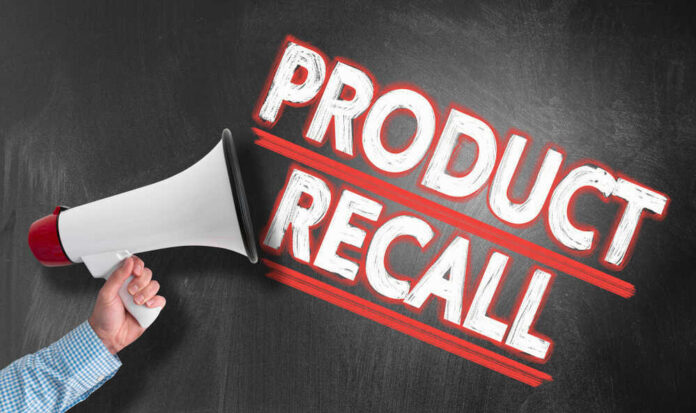
What if the “Zero Sugar” soda you’re sipping isn’t sugar-free at all—a label error that could land some drinkers in the emergency room?
Story Snapshot
- Over 23,000 cans of 7Up Zero Sugar were recalled after it was discovered that cans labeled as “Zero Sugar” actually contained full-sugar soda.
- The recall, initiated by Buffalo Rock Company and classified as Class II by the FDA, poses significant risks for individuals with diabetes and those with a sensitivity to sugar.
- This mislabeling incident follows a similar Dr Pepper recall earlier in 2025, signaling a troubling pattern for the beverage industry.
- The recall affects only Alabama and Florida, but the broader questions about food labeling accuracy and regulatory vigilance resonate nationwide.
Sugar-Free or Sugar Trap? The Real Risk Behind the Recall
More than 23,000 cans of 7Up Zero Sugar Tropical Soda were yanked from shelves after the FDA discovered they contained regular, sugar-loaded soda despite labels touting “Zero Sugar.” The recall, announced in August 2025, covers only specific lot numbers and is limited to Alabama and Florida; yet, the implications extend much farther. For the diabetic who trusts a can’s promise of zero sugar, or the health-conscious consumer counting every carb, this mistake could be more than a disappointment; it could be a real health hazard.
Buffalo Rock Company, the bottler responsible, initiated the recall after internal checks revealed the sugar blunder. The FDA quickly classified the situation as a Class II recall—meaning there’s a moderate risk of temporary or medically reversible adverse health consequences. While no deaths or serious injuries have been reported so far, the error exposes a dangerous vulnerability for consumers who rely on accurate labeling for their health and even their lives. The margin for error shrinks to zero when the stakes are this high.
A Pattern of Errors: When Labels Lie, Trust Erodes
This isn’t the first time a “Zero Sugar” soda has betrayed its promise in 2025. Just months earlier, Dr Pepper Zero Sugar faced an eerily similar recall when cans marked sugar-free were found to contain the real thing. The sequence of incidents suggests more than isolated mistakes—it points to systemic cracks in quality control during beverage production and packaging. The FDA’s enforcement arm has been busy, and the beverage sector is now under a microscope, with every “Zero” claim facing renewed skepticism.
For the companies involved, the stakes are considerable. Buffalo Rock and Keurig Dr Pepper, the parent brand, scrambled to issue refunds and public advisories, assuring the public that “the safety and quality of our products is our top priority.” Retailers in Alabama and Florida fielded questions, processed returns, and navigated the fallout with wary customers. The ripple effects extend to the industry at large, where any whiff of mislabeling threatens to erode trust not just in one product, but in the entire “diet” and “zero” beverage category.
Health, Liability, and the High Cost of a Simple Mistake
For diabetics and anyone with sugar-sensitive conditions, a mislabel like this is not merely a nuisance. Consuming full-sugar soda, believing it’s sugar-free, can lead to dangerous spikes in blood sugar—a risk that is medically reversible for most, but deeply unsettling for all. The FDA’s swift response underscores the seriousness of the error, but it also highlights a curious tension: while the recall is geographically limited, the broader sense of vulnerability is not. If this can happen in Alabama and Florida, why not anywhere?
Financially, the recall costs are immediate and quantifiable, including refunds, logistics, and damaged inventory. But the brand damage and regulatory scrutiny could have longer legs. There’s growing speculation among industry watchers that future labeling standards will be stricter, audits more frequent, and penalties for errors more severe. The beverage industry, already under pressure from shifting consumer preferences, now faces another front: the relentless demand for trustworthiness in every can.
Will This Be the Wake-Up Call That Changes the Industry?
Food safety experts and regulators agree on one point: the trend toward “zero sugar” and other health-conscious labeling leaves no room for error. The current recall, while not catastrophic, is a loud reminder that accuracy is not optional. Some experts argue that these incidents, though embarrassing for brands, demonstrate the effectiveness of regulatory oversight—problems are caught and addressed. Others, more skeptical, see a pattern of systemic failure in labeling accuracy and supply chain management that won’t be solved by apologies and quick recalls alone.
The final question lingers: will this latest recall push the beverage industry to overhaul its quality controls, or will it soon fade from memory—until the next can, the next label, the next consumer wondering if “Zero Sugar” really means what it says?
Sources:
Times of India – FDA recalls nearly 2,000 cases of soda cans over Class II health risk
AOL – Nearly 2,000 cases of popular soda recalled
The Independent – More than 20,000 cans of 7Up Zero recalled over sugar label error



